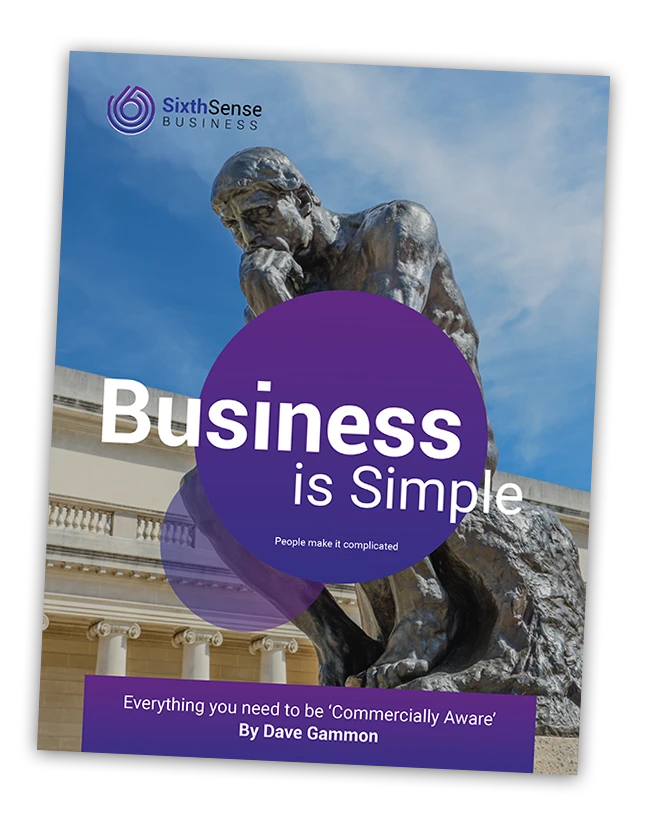
If I could wave a magic wand and change one habit amongst people in positions of responsibility, I wouldn’t hesitate in choosing.
I would consign to history one of the most common and frustrating patterns of habitual behaviour that drains the energy of leaders, costs money and stands in the way of business and personal development.
With a deft flick of the magic wand, I would remove the avoidance and poor execution of ‘difficult’ conversations.
‘What’s in the bag?’
This is my metaphor for all the things you know you ought to be dealing with, but you aren’t.
Each of us has had situations we know require a ‘difficult’ conversation.
The criteria used to classify a conversation as ‘difficult’ is unique to each of us. It can be about an employee’s performance or attitude, delivering bad news to a customer or a supplier, or even as simple as asking the Office Manager to order new toner for the photocopier.
Even experienced business leaders procrastinate, defer and avoid having these conversations. Procrastination overcome; they still ‘choke’ in the conversation and don’t get the outcome they wanted.
Know your enemy to prevent anxiety from getting in the way of achieving the outcomes you want.
At Orange, I had to make four of my management team redundant. My HR manager prepared a script, made me rehearse it and coached me through the process. I knew what to say and, perhaps more importantly, what not to say.
All useful, but none of this preparation prevented the sleepless nights I had or the feeling of panic in my stomach right up until the moment the handle of the meeting room door turned, and the first manager walked in.
All ‘difficult’ conversations have one thing in common.
They involve the potential for rejection or conflict. We are sensitive to situations where we risk upsetting other people or having our status challenged. Sometimes, the very thought of having these conversations creates feelings of anxiety, as our fight/flight responses activate at the perceived risk to our survival.
These feelings often result in procrastination as a ‘go to’ response. Whilst offering some temporary relief, the outcome is two-fold damage. It extends the period of your anxiety, and it means you will not attain your desired results (or at least gain the data you need to plan your next move).
Conversations become more complicated when you cannot predict their path.
In the heat of difficult conversations, unpredicted responses (aggressive or passive) can cause us to ‘choke’. The resulting activation of the fight/flight response is that as much available oxygen as possible is diverted to the muscles – at the expense of the oxygen used to fuel cognitive reasoning.
How many times have you come out of a ‘difficult’ conversation and come up with the perfect response to something said in the meeting, an idea that just wasn’t available to you at the time?
How to manage your conversational state and to take the ‘difficulty’ away.
1: Remove your assumptions.
Many difficult conversations are such because we have built up a story about the perceptions, intentions and likely responses of the other person. This story sets the discussion up before a word is spoken, influencing your state of mind and affecting how you ‘show up’.
Recognising and removing the assumptions you are bringing to the conversation allows you to shift your position to one of curiosity. Instead of trying to get your position across, curiosity permits you to explore the other person’s perspectives.
2: Be clear on outcomes.
A clear outcome should frame any conversation (in a commercial context). What would the situation be like if it were exactly as you wanted it to be? This shift in thinking away from the current position to a planned future state can shift the dynamic of the meeting and reduce the level of perceived difficulty.
Ultimately, there are unknown variables that affect the absolute outcome of most commercial conversations. It’s essential to recognise that results are not always mutually beneficial in business. Not every prospect will choose to buy, not every customer will be placated when a problem occurs and not every employee will adjust their behaviour.
As the initiator of the ‘difficult’ conversation, the goal is to provide a clear decision and a meaningful next step.
When you open a conversation with a discussion of desired outcomes, both parties can see where alignment exists and where misalignment needs to be addressed. Perhaps mutual results are more closely aligned than you might be imagining from the position of your own story.
3: You don’t change other people’s minds; they do.
It’s helpful to be clear about your responsibility for influencing or changing the other person’s mind. The reality is that the only person that can change their mind; is the person themself. Your role in a difficult conversation is not to persuade; it is to create a space within which they can consider and perhaps shift their current position. We frame and control this space using questions, alternative perspectives and intense listening.
Being in a position of responsibility demands stepping outside your comfort zone.
You will always be challenged to initiate and participate in conversations that will make you feel uncomfortable.
The paradox is that it is these very conversations that advance the business and advance you personally. They can free up the roadblocks for the company and drive new opportunities for growth and improvement.
More than that, it grows you as an individual. It expands your zone of comfortable operation and makes you more resilient and confident of moving forward.
After the last manager left the room, I remember sitting back in my chair and experiencing a massive surge of adrenalin, relief and wellbeing. Whilst I was sad at what I had to do, I was proud that I’d been able to do it, and I grew in stature that day.
